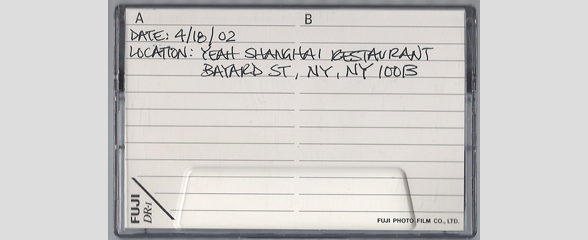Chinese American women;Chinese American families;Father and child;Illegitimate children;Prostitution;Abuse;Chinatown (New York, N.Y.);Chinese American literature;Abuba, Ernest

1984.002.001 Interview with Alice and Jip Chun for Eat a Bowl of Tea
This interview with Alice and Jip Chun, conducted by Ernest Abuba on August 21, 1984 for the Chinatown History Project, discusses Louis Chu’s novel Eat a Bowl of Tea as adapted for stage by Ernest Abuba. Alice Chun worked with Chinese-speaking patients as a public health nurse employed by the Community Service Society. Jip Chun came from a transnational merchants’ family with early roots in New York Chinatown. In the interview, Abuba asks Alice and Jip to help provide a general Chinese cultural perspective or their own perspective on situations and characters presented in the novel or play such as Ben Loy’s acceptance of an illegitimate son, his father Way Gay’s feelings about this, why Way Gay would be upset at his son for visiting prostitutes when he himself did so, the strong female character of Jung Shee, and women being abused. Alice and Jip bring their personal experience and knowledge to bear in discussing the actual instances of prostitution, venereal diseases, sterility, infidelity, illegitimacy, and domestic abuse in postwar Chinatown society. Overall, they paint a picture of how relationships and family dynamics on both sides of the Pacific were directly shaped by extended family separation and gender imbalances resulting from Chinese Exclusion. In the conclusion, they discuss what they perceive might be a large generational or cultural knowledge gap that perhaps renders Chinese customs and practices of the past as represented in the play or novel as foreign or not easily understandable to younger audiences inculcated in contemporary, westernized norms.